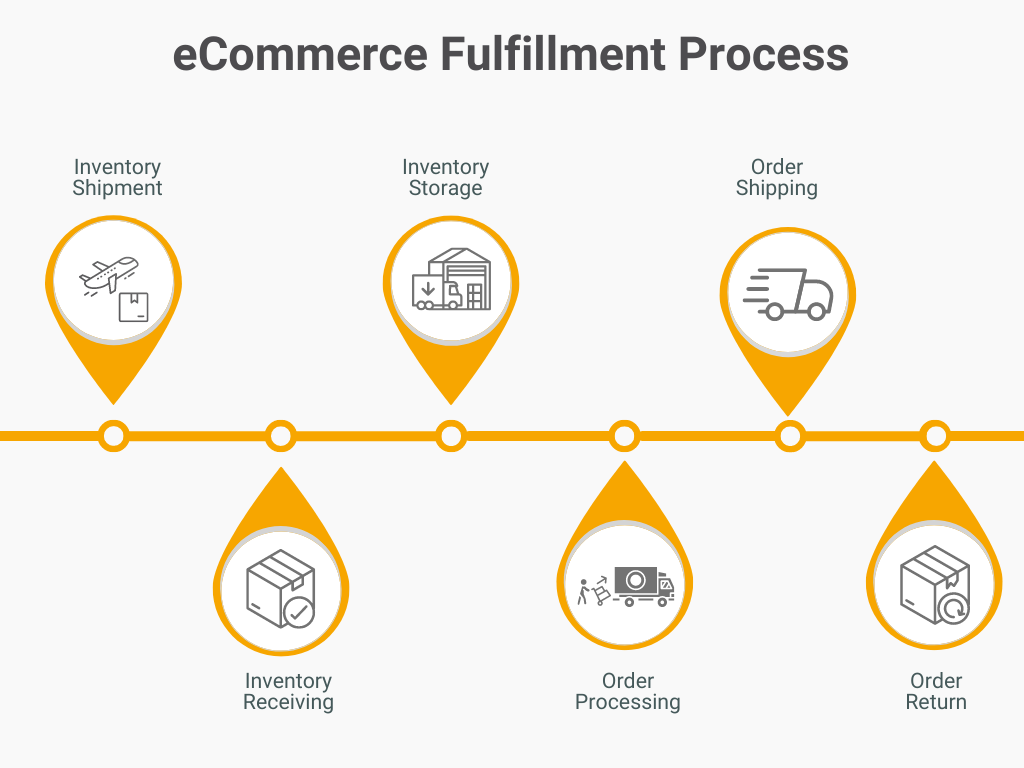The Ultimate Guide to Ecommerce Fulfilment: Enhancing Consumer Contentment
Ecommerce fulfilment is an essential component of the client trip, directly influencing contentment and loyalty. By adopting strategic approaches and leveraging technical innovations, companies can not just meet however go beyond client assumptions.
Understanding Ecommerce Fulfilment
Ecommerce fulfilment is the foundation of on-line retail, encompassing the procedures entailed in obtaining, handling, and providing customer orders. This detailed system starts with supply monitoring, where companies must ensure that stock degrees are kept to meet need. Reliable supply monitoring lessens the threat of stockouts or overstock circumstances, both of which can negatively influence consumer contentment.
Once an order is placed, the fulfilment process requires selecting things from the storehouse, packing them safely, and preparing them for shipment. This phase is essential, as incorrect product packaging can bring about damage throughout transit, causing returns and dissatisfied clients. In addition, the option of shipping service providers and methods straight effects shipment rate and dependability.

Trick Approaches for Success
To achieve success in ecommerce fulfilment, services should apply essential approaches that improve performance and client fulfillment. First, enhancing inventory administration is vital. By making use of information analytics, business can forecast need and preserve optimal stock degrees, reducing the danger of stockouts or overstock scenarios.
Second, establishing strong relationships with trusted shipping companions can substantially influence delivery speed and expense. Organizations must discuss positive terms and check out several providers to make certain flexibility and integrity in their logistics procedures.
Third, streamlining order handling by automating recurring jobs can lead to faster fulfilment times. Executing a reliable order administration system permits businesses to track orders precisely and offer real-time updates to customers.
Additionally, improving communication with consumers is crucial. Offering tracking details and positive alerts concerning order condition cultivates openness, which can boost client trust fund and contentment.
Innovation in Fulfilment Workflow
Automation plays a crucial function in modern-day fulfilment operations, reinventing the method companies manage their logistics. By integrating advanced innovations such as storehouse administration systems (WMS), fabricated intelligence (AI), and robotics, business can enhance their processes, decrease errors, and boost general efficiency.
WMS helps with real-time supply monitoring, allowing companies to preserve ideal stock degrees and lessen satisfaction delays. AI formulas enable anticipating analytics, assisting firms anticipate need and change their procedures as necessary. This ensures that fulfilment facilities her latest blog are geared up to manage changes in order volume with accuracy.
Moreover, the consolidation of robotics and automation tools, such as automated guided lorries (AGVs), speeds up the picking and packing processes. These innovations not just boost rate however also decrease the physical pressure on workers, bring about a much safer office environment.
Additionally, cloud-based platforms enable smooth communication and partnership across the supply chain, supplying presence into every phase of the fulfilment procedure. This interconnectedness is crucial for recognizing bottlenecks and enhancing efficiency. As innovation remains to advance, companies that embrace these innovations in fulfilment operations will certainly be better placed to satisfy consumer expectations and accomplish affordable benefit.
Ideal Practices for Consumer Fulfillment
Making sure customer complete satisfaction in fulfilment procedures calls for a strategic strategy that prioritizes responsiveness and dependability. Among the ideal methods is to maintain clear interaction throughout the order procedure. Supplying consumers with prompt updates regarding their orders, including send off notifications and tracking information, improves openness and builds count on.
Additionally, making certain accurate stock management is critical. Real-time stock tracking assists protect against stockouts and backorders, which can result in consumer disappointment. Executing an effective return policy likewise plays a crucial role; a convenient return process not only reassures consumers yet can additionally urge repeat service.
Furthermore, investing in innovation can improve fulfilment operations and enhance customer experience. Ecommerce Fulfilment. Automated order processing and wise logistics services can reduce mistakes and shipment times, contributing to overall satisfaction
Educating personnel to supply extraordinary client service is an additional essential aspect. Encouraging team members to solve concerns properly can turn possible grievances right into favorable experiences.
Finally, proactively looking for customer responses and executing enhancements based upon that feedback promotes a customer-centric society why not try here and shows a dedication to continuous improvement. By integrating these ideal practices, companies can considerably boost client complete satisfaction in their fulfilment procedures.
Gauging Fulfilment Performance
Assessing the performance of fulfilment procedures is important for preserving high customer fulfillment levels. To accomplish this, businesses must establish clear metrics that mirror their functional performance. Key efficiency indications (KPIs) such as order precision, shipment time, and stock turn over provide beneficial understandings into the efficiency of fulfilment procedures.
Order accuracy gauges the portion of orders provided appropriately, which directly affects customer count on and loyalty. Distribution time, the period from order placement to shipment, is essential as consumers progressively expect much faster shipping choices. Keeping track of these metrics enables services to identify bottlenecks and improve procedures.
Additionally, customer feedback must be integrated right into efficiency dimension. Reviews and surveys can highlight locations requiring improvement and gauge consumer fulfillment with the fulfilment experience. Making use of modern technology such as stockroom administration systems can boost data collection and evaluation, enabling even more educated decisions.
Routine efficiency testimonials and benchmarking against market standards additionally foster constant renovation. By consistently measuring fulfilment efficiency, organizations can adjust to transforming client assumptions and boost their total solution top quality, eventually driving client contentment and retention.
Final Thought
In final thought, efficient ecommerce fulfilment is extremely important for enhancing customer contentment. Measuring fulfilment efficiency via relevant crucial performance indicators permits businesses to continually refine their processes, ultimately leading to improved customer experiences in an affordable industry.
Ecommerce fulfilment is the backbone of online retail, including the procedures involved in receiving, processing, and supplying consumer orders.In addition, ecommerce fulfilment requires reliable order management systems that improve these procedures, tracking and offering real-time have a peek at this website updates details to clients.To achieve success in ecommerce fulfilment, services have to execute vital strategies that boost efficiency and customer fulfillment. As innovation continues to advance, organizations that welcome these improvements in fulfilment operations will be better placed to meet consumer expectations and attain competitive advantage.
